ESTA
CRÍTICA CONTÉM SPOILERS
THIS
REVIEW HAS SPOILERS
Pergunte a todas as pessoas que você conhece
sobre o quê elas se preocupam. A maioria
responderá “sobre o futuro”. Nós, como seres humanos, temos medo do que é
incerto, e depois do que acontece após a morte, nada é mais incerto do que o
futuro. É por isso que nos interessamos tanto pelas pessoas ou obras de arte
que tentam prever o futuro. Seja isso curiosidade ou medo, nós amamos ouvir
previsões. E quando elas se mostram corretas, como acontece em alguns momentos
do filme inglês de 1936 “Daqui a Cem Anos”, nós ficamos completamente chocados.
Ask all
people you know what they worry about. Most of them will say “the future”. We,
as human beings, are afraid of what is uncertain, and second to what happens
after death, nothing is more uncertain than the future. That is why we are so
interested by people or works of art that try to predict the future. Be it
curiosity or fear, we love to hear predictions. And when they get the future
right, like the 1936 English movie “Things to Come” did in a few moments, we
are nothing short of shocked.
Natal de 1940. Os cânticos da época se misturam
com conversas e cartazes sobre uma guerra iminente. John Cabal (Raymond Massey)
está preocupado. O bisavô, homem mais velho da família Cabal, vê as crianças
abrindo os presentes de Natal e se pergunta como a tecnologia evoluirá com o
tempo. John diz que a tecnologia não verá evolução se houver uma guerra. Seu
amigo Passworthy (Edward Chapman) acredita no contrário: ele acha que a guerra
estimula a ciência. E ele não terá de esperar muito para ver se está certo.
Christmas
1940. The seasons’ carols are mixed up with talks and posters about an imminent
war. John Cabal (Raymond Massey) is worried. The Cabal great grandfather sees
the children opening the Christmas gifts and wonders how technology will evolve
with time. John says technology won’t evolve if there is a war. His friend
Passworthy (Edward Chapman) believes the opposite: he thinks war stimulates
science. And he won’t have to wait long to see if he is right.
A guerra começa naquela noite, e dura 26 anos.
Cabal e Passworthy vão para o front, e Cabal se alista na Aeronáutica – preste
atenção em um piloto malfadado e você reconhecerá George Sanders. A cidade
deles, chamada Everytown, é destruída por tanques, e fica parecendo com o que
seria a Berlim do pós-Segunda Guerra. Com a guerra, vem uma nova tragédia: uma
epidemia mortal. Se a doença que seguiu à Primeira Guerra foi a gripe espanhola,
a nova doença fictícia mortal é a doença
ambulante. Todas as pessoas que são infectadas e começam a vagar são mortas –
incluindo a irmã de Richard Gordon (Derrick de Marney).
The war
starts that same night, and lasts for 26 years. Cabal and Passworthy go to the
front, where Cabal joins the Air Force – take a close look at an ill-fated
pilot and you’ll recognize George Sanders. Their hometown, wisely named
Everytown, is destroyed by tanks, and then bears a horrifying resemblance to
the post-WWII Berlin. With the war, a new tragedy strikes: a mortal epidemic.
If the post-WWI disease was the Spanish flu, the new fictional mortal disease
is the wandering sickness. All people who are infected and start wandering are
shot – including Richard Gordon’s (Derrick de Marney) sister.
Quando a epidemia termina e o número de pessoas
na Terra cai pela metade, estamos de volta à Idade Média – e, ah, sim,
novamente em estado de alerta para guerra. Não há mais petróleo. Voar se tornou
algo impossível... até que um avião aterrisa. Quem está pilotando é o nosso
velho amigo John cabal, que é agora um membro do grupo Asas Sobre o Mundo –
algo como as Nações Unidas, só que funcionando para valer. John não é bem
recebido pelo novo Chefe (Ralph Richardson), que é uma figura despótica. A Asas
Sobre o Mundo quer derrubar o Chefe e construir um novo mundo com base na
ciência e no conhecimento.
When
the epidemic ends and the number of humans on Earth is cut by half, we are back
at the Middle Ages – and, oh, yes, there is a new state of war. There is no
petrol anymore. Flying became impossible... until a plane lands. Who is flying
it is our old friend John Cabal, who is now a member of the institution Wings
Over the World – like an United Nations that really works. John is not welcomed
by the new Boss (Ralph Richardson), who is a despotic figure. Wings Over the
World wants to dethrone the Boss and build a new world with science and
knowledge.
O ano é agora 2016. O novo mundo está aí, e o
bisneto de John, Oswald (novamente Raymond Massey) é o responsável pelo
programa espacial de Everytown. Ele quer mandar o homem para a lua, e os dois
voluntários para a missão são sua filha, Catherine (Pearl Argyle) e o jovem
filho dos Passworthy, Maurice (Kenneth Villiers). Mas um homem chamado Theotocopoulos
(Cedric Hardwicke) não está satisfeito com a era tecnológica e conclama os
homens para destruir as máquinas.
The
year is now 2036. The new world is here, and John’s great grandson, Oswald
(also Raymond Massey) is the head of Everytown’s space program. He wants to
send the man to the moon, and the two volunteers are his daughter, Catherine
(Pearl Argyle) and the young Passworthy son, Maurice (Kenneth Villiers). But a
man named Theotocopoulos (Cedric Hardwicke) is not very happy with the
technological era and gathers the people to destroy the machines.
“Daqui a Cem Anos” é
baseado em um livro de HG Wells, publicado em 1933. O próprio Wells escreveu o
roteiro e, de acordo com algumas fontes, começou a dirigir o filme, mas devido
à sua falta de experiência atrás das câmeras, ele foi substituído por William
Cameron Menzies. Wells é uma destas pessoas – assim como Nostradamus – cujas previsões
ainda nos surpreendem.
“Things
to Come” is based on a HG Wells novel published three years earlier. Wells
himself wrote the screenplay and, according to some sources, started directing
the movie, but because of his lack of experience behind the cameras he was
replaced by William Cameron Menzies. Wells is one of those people – together
with Nostradamus – whose predictions still amaze us.
A trama é muito
complexa, com novos personagens e conflitos sendo apresentados a todo momento –
você não ficou confuso só de ler os parágrafos acima? Os personagens não são aprofundados,
sendo mais arquétipos do que seres ficcionais com os quais nos importamos. Há
muitas sequências impressionantes, tanto da guerra quanto da reconstrução
tecnológica. Por isso “Daqui a Cem Anos” custou aproximadamente 300 mil libras
– o equivalente a quase 20 mil libras hoje, ou mais de 27 milhões de dólares.
The
plot is very thick, always introducing new characters and new conflicts – I
mean, weren’t you confused just by reading the previous paragraphs? The
characters are not deepened, being more like archetypes than fictional beings
we'd care about. There are many jaw-dropping sequences, both from the war and
from the technological reconstruction. No wonder “Things to Come” cost
approximately 300 thousand pounds – the equivalent of almost 20 million pounds
nowadays, or more than 27 million dollars.
Eu gosto muito de
assistir a filmes de ficção científica e ver quais previsões deram certo e
quais foram um tiro n’água.Obviamente, a previsão da guerra vindoura é a
primeira que nos impressiona em “Daqui a Cem Anos”. Os paralelos com a última
guerra, ainda muito fresca na mente de todos, são óbvios. Entretanto, não há
duas guerras iguais.
I
really like watching science fiction and seeing what the film predicted right
and what it got wrong. Obviously, predicting the upcoming war is the first
thing that impresses us in “Things to Come”. The parallels between the last
war, still very fresh in everybody’s mind, are obvious. But no two wars are the
same.
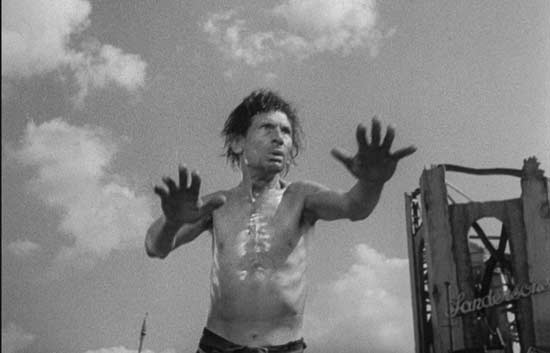 |
| A man with "wandering sickness" |
E quanto à
tecnologia? Bem, o filme nos surpreende ao prever a existência de televisões
gigantes de tela plana em todas as casas. A maneira como os foguetes são
lançados no futuro do filme lembram um pouco da realidade, embora o processo de
lançamento não se pareça com o de atirar. O maior erro é que foi previsto que a
corrida espacial começaria em 2036, quando na verdade a lua foi visitada pela
primeira vez em 1969. Bem, precisamos perdoá-los, pois se a guerra tivesse, de
fato, durado 26 anos, a lua ainda seria um sonho distante. Mas não vamos
perdoar as roupas. As pessoas de 2016 se vestem como romanos sensuais, e eu fico
feliz por esta previsão não ter se tornado realidade... ainda.
What about technology? Well, the film surprises us by predicting flat-screen TV sets, with huge
screens, in every house. The way rockets are launched in the future seen in the
film resemble a bit the real thing, although the process is not like firing a
gun. The biggest let down is that they predicted the space exploration would
start in 2036, when in reality the moon was visited by the first time in 1969.
Well, let’s forgive them, if the war had, indeed, lasted 26 years, the moon
would still be a far away dream. But we won’t forgive the clothes. The people
of 2036 dress like sexy Romans, and I’m happy this prediction didn’t become
true… yet.
O ódio de
Theotocopoulos pela tecnologia é o mais perto que chegamos de uma luta de
classes – e ela se parece muito com o movimento Luddista da Revolução
Industrial. Hoje, a maioria das pessoas aceitou que a tecnologia é parte da
vida, e o movimento atual é contra o progresso social. Nós exploramos outros
planetas, mas não conseguimos respeitar as escolhas dos outros. Não podemos
ignorar a onda conservadora que está se tornando maior e mais forte,
infelizmente. Nós também temos de enfrentar coisas que não foram previstas pela
ficção científica.
Theotocopoulos’
dislike of technology is the closest we get from the class struggle subject –
and it’s a lot like the Luddite movement from the Industrial Revolution. Today,
most people accepted that technology is a part of life, and the current movement
is against social progress. We explore planets, but can’t respect each other’s
choices. We can’t ignore the conservative wave that is becoming bigger and
stronger, unfortunately. We have to face things that were not predicted by
science fiction, too.
O que podemos
aprender com “Daqui a Cem Anos”? Que o mundo pode acabar, mas ele será
reconstruído. Aconteceu na era Paleozoica (descansem em paz, trilobitas),
aconteceu quando os dinossauros foram extintos, aconteceu a cada guerra. Talvez
haja algo ainda pior que a Segunda Guerra Mundial vindo por aí. Muitos vão
perecer. Mas o mundo vai permanecer.
What
can we learn from “Things to Come”? That the world may end, but it will be
rebuilt. It happened in the Paleozoic era (RIP trilobites), it happened when
the dinosaurs were extinct, it happened with each and every war. Maybe there is
something worse than World War II coming in the horizon. Maybe we will perish.
But the world will go on.
This is my contribution to the End of the World blogathon, hosted by Quiggy and Steve at The Midnite Drive-In and Movie Movie Blog Blog.
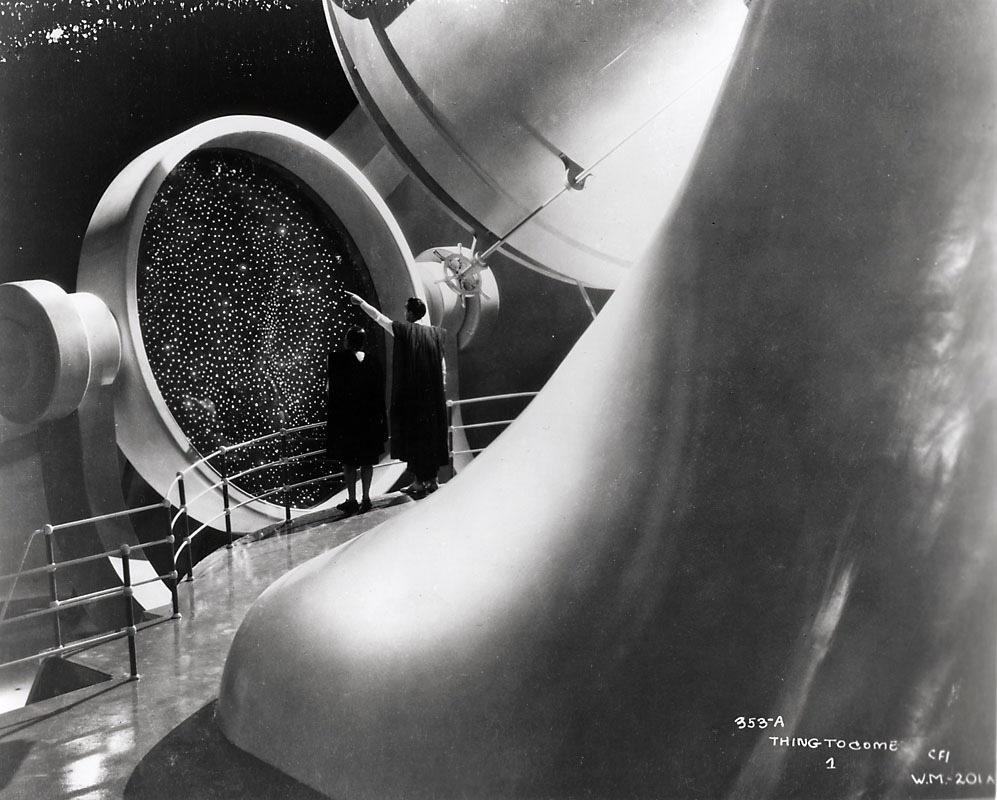


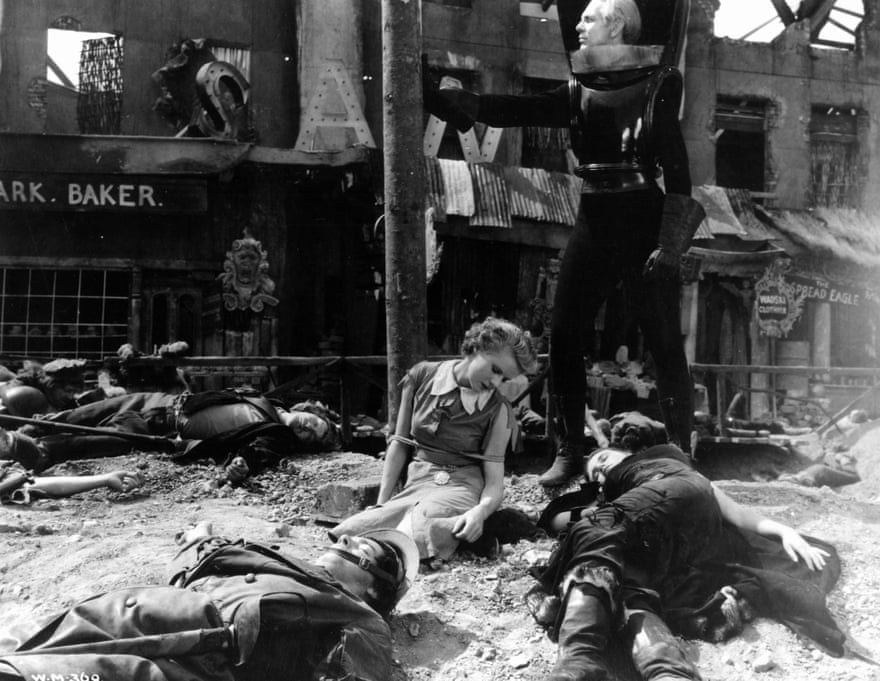
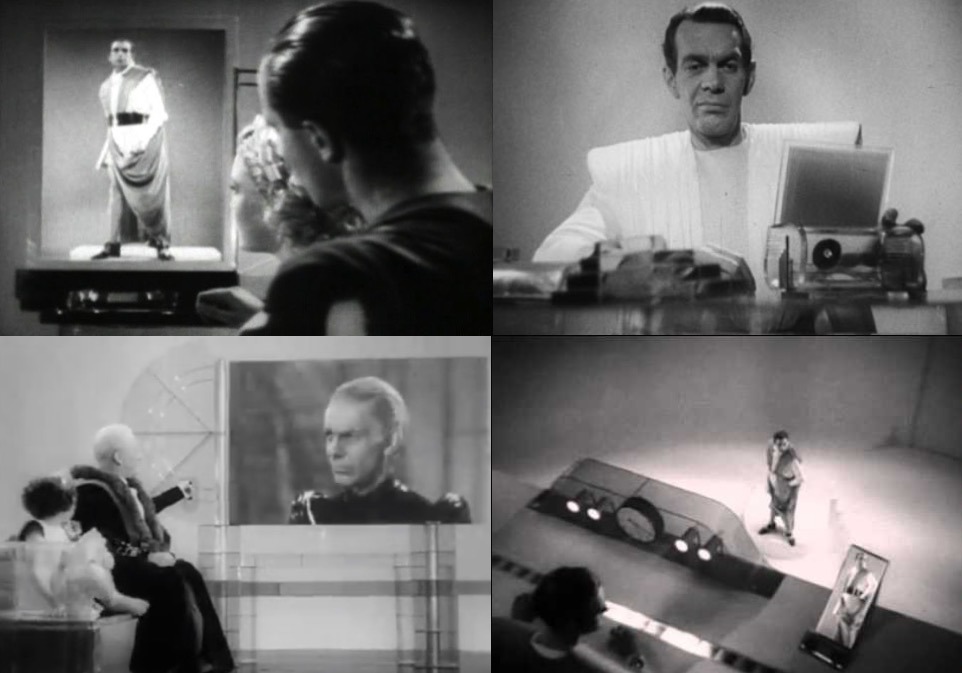
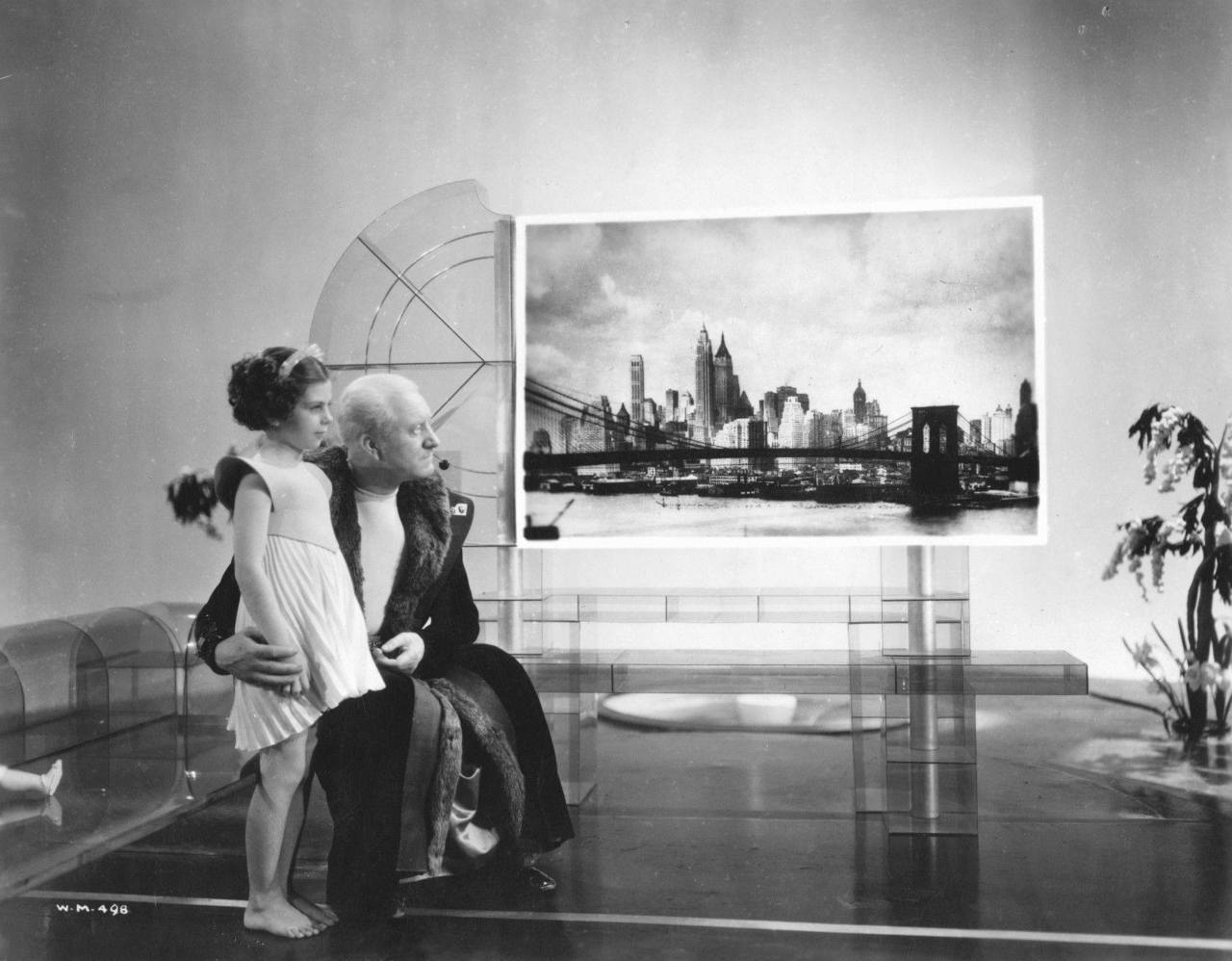
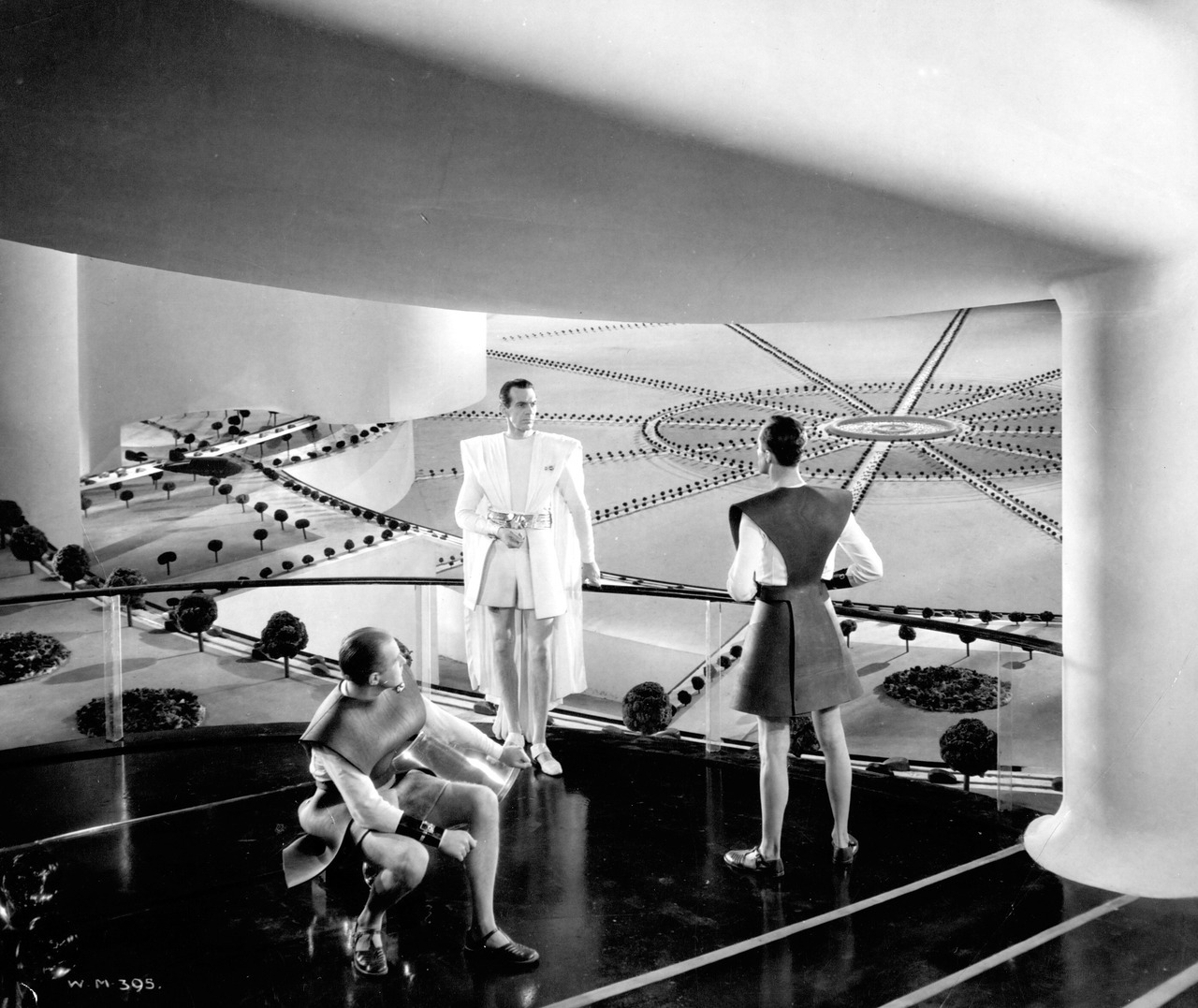

Wells' socialist ideology seems to come pretty heavy in most of his work. Seems like this movie might fall in the same category. Haven't seen it. But I will keep looking.
ReplyDeleteVery interesting! I'll have to check this one out. Thank you for contributing to the blogathon!
ReplyDeleteThe movie is fascinating and engrossing. An excellent choice for this blogathon and a clear-eyed article. The opening scenes, with the beginning of the war move me the most.
ReplyDeleteHaha! I laughed when you said you wouldn't forgive the wardrobe choice. I would agree!
ReplyDeleteHere is another "new" film you've introduced me to. I don't have an encyclopedic knowledge of classic film, but with this cast & budget, I'm a little surprised I've never heard of it before.
It does sound thought-provoking, although confusing, but I think it's one worth watching...even if only for the bragging rights! ;)